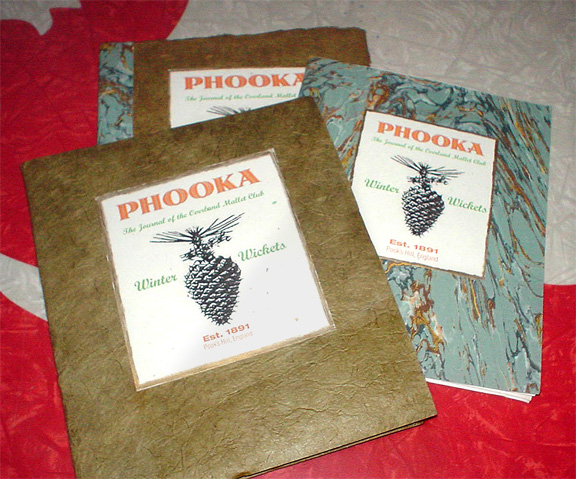I got the Folk Festival Blues
Gotta watch out for what you think are ‘folk festivals’ that actually
don’t have the word in their title. Sometimes even if they do. Mainly they’re getting to be just
excuses to party and offer another venue for mass entertainment.
A marketing opportunity for an audience. Folk culture doesn’t
have markets. I found out from a longtime ‘folk festival’
goer that it’s actually the quaint little booth vendors that
drive these events.
When you think something is FOR the people or BY them, look
at it more closely.
Beware the herd.
It’s being groomed. (Primarily for fleecing.)
These things are nice times and full of decent people. I haven’t
seen fights at them. But they’re going to mass culture, away from
folk culture. They’re going to ‘us vs them’.
Of course this happens once they become popular, get bigger,
people (in the mass sense) start finding out about them. The worry
about bad people starts. Then the rules start, then the separation.
Mixed with ever greater opportunity for some to make money.
What is folk? What is roots? I think it’s something
you learn from your parents. It’s local. It can basically be done around
kids (excepting the ‘initiation’ elements of folk culture). It’s a part of
life, not a stepping out from it. It fits, it’s necessary. It’s sustainable.
Maybe religion will be involved? Gospel is a big part of bluegrass.
Separable? Folk is built into the work life of a people, not an escape from
it. (Somehow I don’t think that partying on the weekends after working
in the factory rounds out the folk culture of modernism.)
I think a good sign of a folk event might be when no one knows who’s
hosting it or who started it…it just happens. You don’t have to wear
arm-bracelets at a real one. Dogs and campfires are OK. Sure, rules
help folks get along at an event, but a real folk event would lean
on manners instead. If that didn’t work, it wasn’t folk that was happening.
(Manners including ejecting disrupters.)
After my last visit to a folk fest, I was at a remote beach resting up from
the oppressive crowds and came across some locals one evening playing
the Stones pretty loud with their van backed up to the shore and a
purple metallic flake drumset all set up with a guy drumming along
to all the songs and singing loud. In that wilderness, swimming along
in that perfect Great Lakes water and listening to those out of tune yahoos,
they seemed more folky to me than the professional out of state world music
eclectic alternative sounds that I’d been hearing previously at the fest.
Of course, good zining is folk all the way.
*****
Zines as Folk Culture
Just wondering…
So are zines part of a holistic uprising due to change in technology?
Such that the truth about our world suddenly has no stoppers on it due
to Kinkos and the Net. So real stories suddenly start flowing out
unchecked by censors.
Or is it just a simple reaction to the anticultural bondage that predominates.
Corrosion can be folk, I’d think. Walls need tearing down periodically.
However, if it’s just reaction…someone tossing doggy poo to the
world just coz their suburb is boring to them…then I’m not sure that aspect of zining
is folk. More like just another part of mass culture, the rebel part, fully co-opted.
Destruction without a nod to the real cure ends up being co-opted.
Gets co-opted before it even leaves the starting gate, 99% of the time. Thus it’s not a good
roots tool. Not part of folk. More like psychosis.
Is folk about Us/Them? Is it divisive? (Woody Guthrie sings about
the rich man versus poor man.) The blues is folk, and emotional. It laments against Fate.
But is folk political? Does it try to change Fate? Is it that stupid?
I’m not sure folk is about fun. Zines about fun aren’t too different
from shopping, which as an arm of marketing is basically anticulture,
not part of any folkway I heard of.
I’d think that folk means integrity. Sustainable. Cyclic. Not conflict.
(Not like the conflict b/w owner who wants $ and shopper who has $.)
Folk really can’t be damaged where it exists. It can be extinguished physically,
but its essence would be unchanged as long as a human exists. Anything
that isn’t folk simply doesn’t exist to a folk culture. It’s part of the world of
illusion. Sure, wrongheadedness/inertia/decay will bring down life’s structures,
but the integrity of folk will pop up again wherever there’s the POTENTIAL of
an honest human life.
So I’m not sure folk can be political. It doesn’t push for change. It
just is.
When a zine simply reports the truth about life, about a hobby,
whatever, it’s folk. Maybe?
If it agitates for something, it’s propaganda. If it has an agenda,
if it’s professional, it’s a marketing piece. Pro’s can’t really tell the truth,
can they? Pro’s divide their world into customers and colleagues. And there
are certain ways things must be pitched to the customer. Spin, lie.
In that sense, I’d rather be a pro inwardly and an amateur outwardly.
I think that’s what Southern culture used to be all about. Still is,
where it’s hiding out. (Agriculture is folk. Agribusiness isn’t.)
*****
Folk and What’s Necessary
Latest notion: folk is culture which relates to the necessities of
life. (Food, shelter, heat, family, friends, neighbors, enemies, roots.)
I think it was a folk tradition in this country when many
folks used to spend evenings singing songs. Contrast with watching
MTV. I think we need a revival of folks knowing how to sing
and knowing quite a few local songs.
I think folks zining is like folks singing. Take the culture from
the Beast and get it back to the People.
Now, the weakness of the People is that they often do a darn
good job of imitating the Beast themselves: out-Heroding Herod.
So not every zine would qualify as folk.
Folk singing is designed to be able to be done by anyone
and to pass on important cultural stories. Professional singing is
designed to make money and to be entertaining. Sometimes
art and culture are involved with pro singing, but it’s not
necessary: in fact it would make a manager just as happy if
the singing was corrupting, corrosive and addicting if it meant
that more people would buy the music.
Same thing with zining. There are more people who can zine
compared with those who have the skills needed to run a
profitable publishing house. Also maybe some very impt cultural info could
be passed along via zines compared to professional publishing.
******
Big generalization, I know, but maybe also involving a pertinent principle.
What are the benefits of Mass Market Culture? Examples?
Compare these to benefits of cultural features developed to
develop the life of the individual.
I keep seeing the people in a mass market as being sheep
being fleeced every way possible. With their development being
only done with a view toward even bigger fleecing in the future.
Maybe you’d have to ask about the goals of mass markets
versus the goals of folk culture.
MM might be money, power, fun. FC might be a rewarding life
in continuity with ancestry expressed by way of cycles and duty.
Either one would be liable to error. But which might tend to produce more
actual longterm value? Which might be easier to keep to original purpose?
For one thing, MM looks shaky from the get-go because it usually
HIDES its goals. I guess you would take each on its merits. The purpose
of MM seems to be corrupt at its root and unsustainable, inhuman
—factory life. FC *could* be set up on life-supporting values.
Take mass market music. Sure some of it might be good and impt
from time to time. But even so, would it be a dilution from local
music developed for local reasons?
Don’t neglect side effects—where mass market medicine fixes one
problem while it creates more and neglects originating factors in the first place.
I’d take the Amish perhaps as a folk example. We have very few
traditions left otherwise of a model that was fairly widespread pre-1910.
But you can see attempts at folk elsewhere. Then see what happens to them.
Does ‘mass society’ happen to them?
I was thinking of the Gun Problem and this angle occurred to me in light of it.
Guns seem to be fine. Their core development and culture seems to be
in the hands of people who keep roots traditions alive and who often even
know each other: like all real culture perhaps, it’s a small world involving
duty and responsibility connected back over generations. Its goals
are integrity, safety and service, and many have given their lives to stick to
these roots. But what happens when guns become part of Mass Society?
When people try to profit by them by any means necessary? When they
see that poor people are the easiest to fleece into working overtime to
buy hundreds of guns? –Having to have every new model, for instance, is
not an unusual hobbyist-slave response. Do the profiteers mind this?
Does their goal include its own destruction? I think so. Guns + MM = Trouble.
Crime, passion, ignorance, Pavlov, indulgence, recklessness.
All the things that the profiteers encourage to get people to loosen
their pursestrings also create cultural disaster. Of course, the bosses
aren’t about to cut their own throats literally. Outwardly, gun safety is
twice improved over 20 years ago even—far fewer accidents; lots of training;
far more defense uses outweighing criminal use. Their market grows!
They’ve safely institutionalized indulgence. —Like the improved safety of cars
which lets us waste even more of our lives driving them. But what about roots?
Ever fewer drive or shoot due to need to put food on the table. If you do,
you’re looked at like a freak. Complain about huge rabbit hunting license
fees and you’re called a poacher. Trouble in store? Instead of, or in addition
to, a police state, we get a Shopper’s State. And maybe a 20,000 Dow?
Well, they try to patch it all up, but someone has to pay. Actually anyone
who lives apart from roots pays every second of the day, but they generally
have hidden sweatshoppers paying, too. But what about when you’re your
own willing sweatshopper? 100 hrs a week? No prob, as long as I can buy guns!
Maybe here we see a split in results between the forces of FC and MM as
they apply to a cultural feature.



